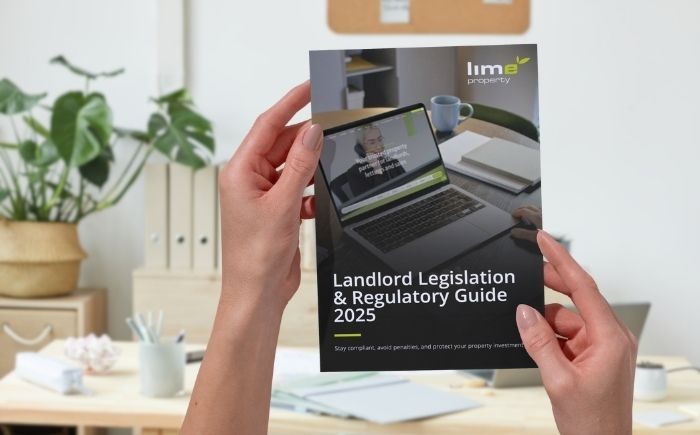
As July 2025 approaches, the Renters (Reform) Bill continues to move through the House of Lords, with Parliament scheduled to recess on 22nd July. For Hull landlords, this long-awaited legislation represents the most extensive overhaul of the private rented sector since the Housing Act 1988.
Given Hull's status as one of Yorkshire's most profitable rental markets—with yields averaging around 7%—staying ahead of these changes is crucial for protecting returns and ensuring compliance as the regulatory landscape evolves.
Current Legislative Progress
As of 15th May 2025, the Bill has passed the Committee Stage in the House of Lords and is progressing through the Report Stage, expected to conclude by 15th July. If passed, Royal Assent may follow swiftly before Parliament's summer recess.
However, implementation won't be immediate. Secondary legislation and guidance are expected in late 2025, with most provisions likely coming into force in mid to late 2026, allowing sufficient time for landlords to prepare their portfolios.
Major Changes Affecting Hull Landlords
End of Section 21 'No-Fault' Evictions
The Bill abolishes Section 21 notices, meaning Hull landlords will no longer be able to evict tenants without providing a valid reason. All future evictions must rely on amended or new Section 8 grounds, including:
- Serious rent arrears (typically 2 months or more)
- Anti-social behaviour affecting neighbours
- Sale of the property with proper documentation
- Landlord or close family moving in
- Breach of tenancy agreement terms
Hull-specific implications: From student HMOs in Newland Avenue to family homes in Kingswood, understanding how to correctly apply possession grounds will become essential for all property types across the city.
Transition to Periodic Tenancies
Fixed-term assured shorthold tenancies will be replaced entirely by rolling periodic tenancies. This fundamental change affects:
New tenancies: All agreements will be automatically periodic from commencement Existing tenancies: Current fixed-term contracts will convert once the legislation is enacted
Practical example: A three-year tenancy signed in September 2025 would automatically convert to periodic if the Bill is implemented by mid-2026, regardless of the original term length.
Enhanced Tenant Notice Rights
Tenants will gain the right to leave at any point by giving just two months' notice, significantly enhancing tenant flexibility whilst requiring landlords to plan for potential short-notice departures and increased portfolio management complexity.
Strengthened Section 8 Possession Grounds
The Bill introduces several new and adjusted grounds for possession, including:
Purpose-built student lettings: Enables landlords to reclaim possession in line with academic calendars Superior landlord requirement: When a higher-tier leaseholder needs possession for legitimate reasons Substantial redevelopment: For major renovations, rebuilds, or significant property improvements
Hull market consideration: With over 16,000 students at the University of Hull, the student accommodation ground becomes particularly relevant for properties in HU5 and HU6 postcodes.
New Rent Increase Restrictions
The reformed system introduces strict controls on rental increases:
- Maximum one increase per calendar year
- Two months' advance notice required for all increases
- All increases must follow the statutory Section 13 process
- Tenants can challenge increases via First-Tier Tribunal
- Increases must reflect genuine market rates with supporting evidence
Protected Period for New Tenancies
To reduce tenant instability, landlords cannot regain possession for sale or personal use within the first 12 months of any new tenancy, requiring more strategic planning for portfolio management.
New Compliance Requirements
National Private Rented Sector Database
A comprehensive PRS Database will require all Hull landlords to register themselves and their properties. This system will:
- Support local authority enforcement activities
- Help tenants verify landlord compliance history
- Provide transparency about property standards and management
- Enable targeted intervention where needed
Mandatory Ombudsman Membership
All landlords, including those who self-manage properties, must join a government-approved ombudsman scheme before marketing their properties. This service will:
- Resolve tenant complaints without requiring court proceedings
- Offer binding decisions for both parties
- Encourage faster, fairer dispute resolution
- Reduce legal costs for minor disputes
Decent Homes Standard Implementation
Landlords must ensure all properties meet the new minimum housing standard, extending the existing Decent Homes Standard from social to private sector lettings. Requirements include:
- Meeting all current health and safety standards
- Keeping properties in good state of repair
- Providing reasonable degree of thermal comfort
- Ensuring adequate modern facilities and services
Awaab's Law Application
Following the tragic death of two-year-old Awaab Ishak from mould exposure, landlords must act swiftly to investigate and remedy serious hazards such as damp and mould within prescribed timeframes (specific periods yet to be finalised in secondary legislation).
Preparation Steps for Hull Landlords
Review Current Tenancy Agreements
Immediate actions required:
- Identify how and when existing fixed-term contracts will transition to periodic
- Prepare for automatic invalidation of break clauses
- Review rent review clauses and timing arrangements
- Map out appropriate Section 8 use cases for your specific portfolio
Conduct Comprehensive Property Assessments
Get ahead of Decent Homes requirements with full condition reports, paying particular attention to:
HU1–HU2 (City Centre properties): Older buildings often require damp prevention and insulation improvements HU6 (Student lettings): Prepare for stricter HMO standards and turnover-related maintenance requirements HU5–HU7 (Family lettings): Focus on safety features, energy efficiency, and family-appropriate amenities
Plan Energy Efficiency Improvements
Though not directly addressed in the Bill, improved EPC standards are expected by 2030. Strategic actions include:
- Commission current EPCs for all properties
- Schedule upgrades to achieve minimum Band C ratings
- Plan for insulation improvements, smart heating systems, or solar installations where appropriate
- Budget for efficiency improvements across your portfolio
Establish Legal Compliance Systems
Essential preparations:
- Research and prepare to join approved ombudsman schemes
- Start gathering documentation for PRS Database registration
- Maintain organised records: repair histories, safety certificates, tenant correspondence
- Implement systematic compliance tracking procedures
Engage Professional Support
Work proactively with:
- Legal advisers familiar with the Renters (Reform) Bill implications
- Licensed contractors for property improvement works
- Experienced property managers to implement best practice procedures
- Local Hull lettings specialists understanding regional market dynamics
Market Opportunities for Professional Landlords
Professionalism Premium
Compliant, well-maintained properties will command market premiums as standards become more stringent. With Hull's affordable entry points, even modest upgrades can deliver strong returns whilst significantly improving tenant satisfaction.
Reduced Turnover Benefits
Although tenants can give two months' notice, the system is specifically designed to encourage long-term tenancy stability. Well-managed properties will likely experience reduced turnover costs and longer tenancy periods.
Enhanced Student Letting Strategy
Strategic considerations:
- Leverage the new student accommodation ground with clear academic-year structuring
- Plan tenancy cycles and marketing strategies well in advance
- Ensure all HMOs meet both new and existing regulatory standards
- Develop robust maintenance schedules for high-turnover properties
Key Implementation Timeline
July 2025: Report Stage expected to conclude in House of Lords By 22nd July 2025: Royal Assent likely before summer parliamentary recess Autumn 2025: Secondary legislation and detailed guidance expected publication Mid to Late 2026: Anticipated phased implementation begins across England
Staying Informed and Compliant
Essential information sources:
- GOV.UK legislative updates and guidance documents
- National Residential Landlords Association (NRLA) briefings and resources
- Local Hull landlord forums and networking groups
- Professional property management communications and training
Professional Property Management Support
At Lime Property, we're actively preparing to support Hull landlords through this significant transition period. Whether you manage one property or an extensive portfolio, our comprehensive management services are being updated to ensure:
Full legal compliance with all new regulatory requirements Proactive maintenance programmes meeting enhanced standards Efficient administration systems for streamlined portfolio management Strategic tenant management aligned with new legislative framework
Ready to prepare your portfolio? Call us on 01482 216060 to discuss your specific situation. We're committed to ensuring you're prepared not just for compliance, but for continued success in Hull's evolving rental market.
The landlords who embrace these changes professionally and proactively will be best positioned to thrive in Hull's competitive rental market whilst maintaining the strong yields that make the city such an attractive investment destination.




